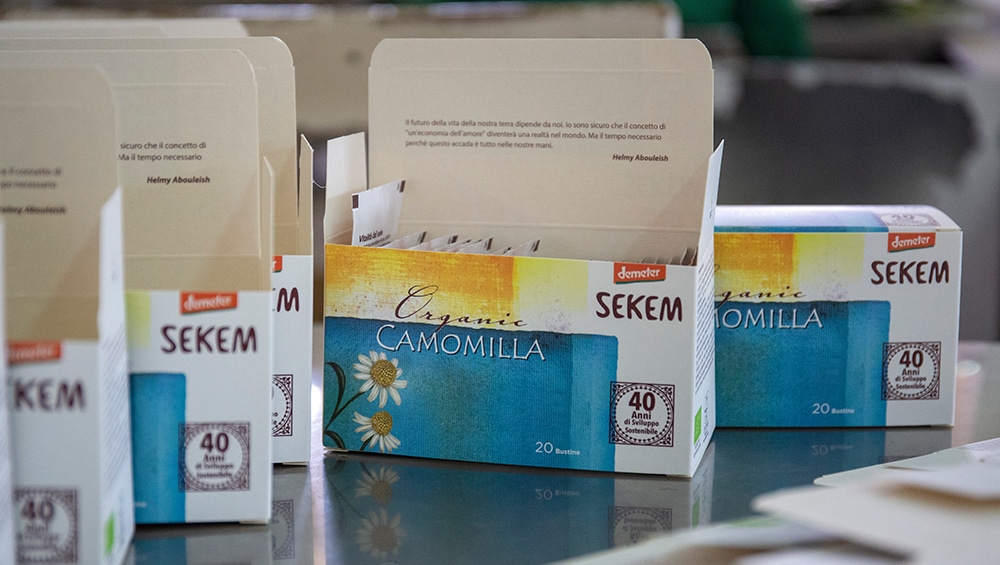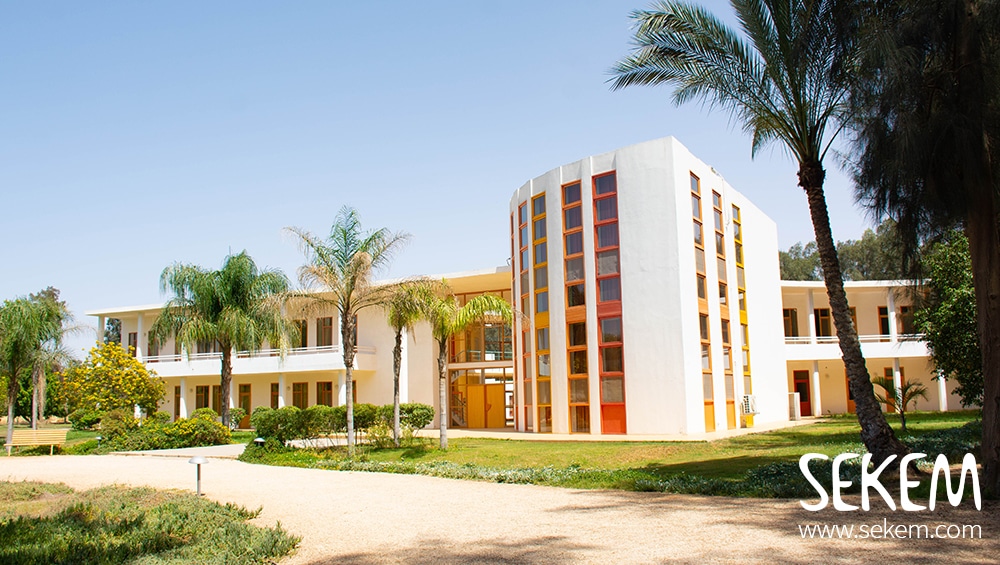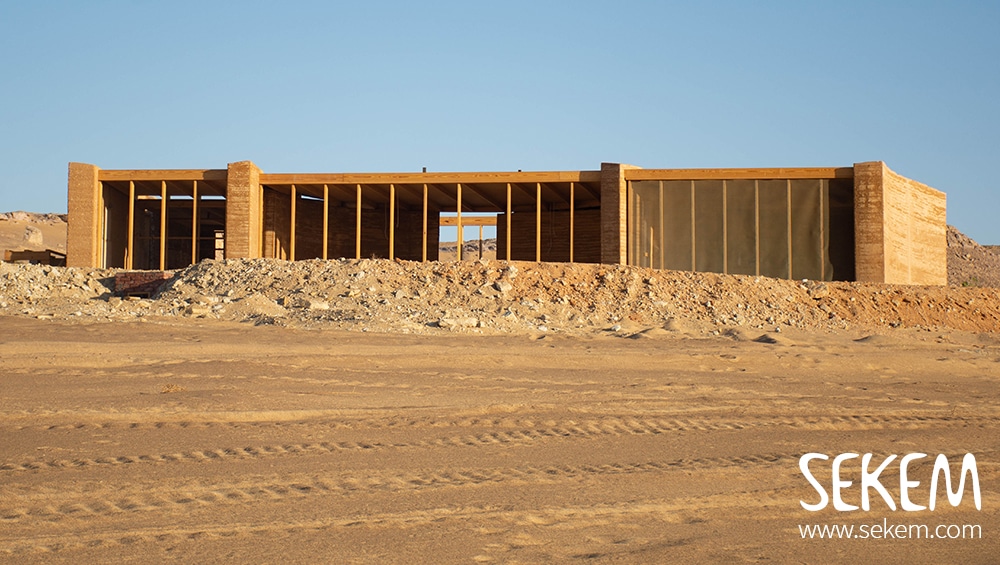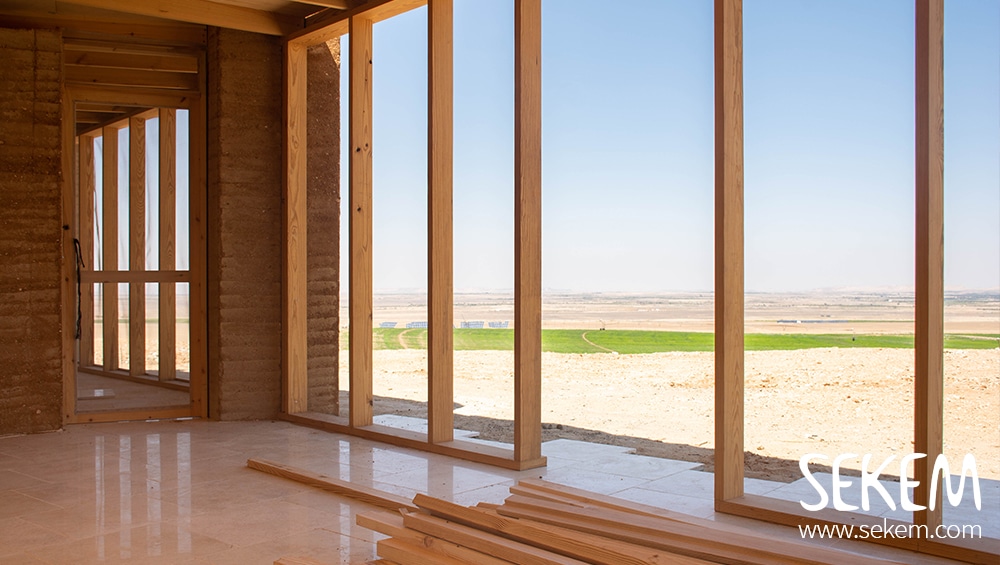For a sustainable way of living on earth, a shift towards responsible and conscious consumption is essential. Therefore, the individual consumer directly depends on the provided products and services.
In the context of the SEKEM Vision 2057 for the development of a sustainable Egypt, we aim to work towards making sustainable consumption possible and commonplace at all levels and for all people: From one’s choices in the supermarket, to the planning of one’s vacations, to the creation of one’s home. By offering adequate and accessible services and inspirations, we wish to motivate people for an adaption of their individual lifestyle.
Our Demeter-certified products, known as healthy and high-quality alternative on the Egyptian market, give a taste of the desired direction. The use of mostly durable packaging materials as well as ecologically and socially fair conditions of production are precondition to our services. However, since offering appropriate products alone is not enough to create awareness of the importance and advantages of sustainable goods, we try to inform and educate in various ways.

The design of informative products through communication on packaging, as is already done with those of the SEKEM brand, is one way to do so. Informative texts that give an insight into the supply-chain of a product can be applied to the already existing, diverse range of goods.
Public events and trainings can additionally help in addressing a wider audience.
Using alternative technologies
An important aspect regarding a sustainable way of living is the area of information technology, which is omnipresent in the digital age and affects all of us. Here, too, it is important to look for alternatives to counteract the socially and ecologically damaging mass production of smartphones and the monopolization of a few big players in the industry. The use of appropriate search engines, such as Ecosia, is an easy way to make a difference on the individual level. Another sustainable option is the Fairphone, which consists of the recycling of “old” smartphones. It thus contributes to saving finite resources and reducing e-waste.
SEKEM is currently working to import fairly traded and produced smartphones to Egypt. Also, SEKEM is in the process of transitioning from conventional search engines or IT programs to alternative opensource systems.
Traveling environmentally friendly
Globalization made the sector of services become a significant part of our private and professional lives and has a direct impact on the earth’s climate. To design a relieving option to conventional tourism, SEKEM offers sustainable trips to Egypt. The focus is to raise awareness for our work in direct application. For the stay of our guests, we constructed the Eco-Village guesthouse on our farm, giving direct insights into SEKEM’s work. The possibility of excursions into Egypt’s rich cultural landscape allow to put the impressions into a local context. To compensate the resulting climate impact of the trip, we offer various options, such as our CO2 certificate.

Inspiration: Sustainable housing
Even your home can be designed in a sustainable way. Our prototype of a sustainable house on the SEKEM desert-farm in What El-Bahareyya offers an exemplary solution approach for the increasing demand for buildings in Egypt:
The building is made exclusively of sustainable materials: Rammed earth, wood, linseed oil, glass, steel, natural stone, straw, and cotton form the elementary basis. Apart from being very affordable, rammed earth requires very little primary energy and brings with it many useful properties that make it one of the most environmentally friendly building materials of all. The produced wastewater is, after being cleaned, used to irrigate trees, which in turn create locally grown hardwood suitable for furniture production. In this way, the waste of valuable resources and the dependency of the international timber-market can be avoided. Instead, such proceedings allow us to produce sustainable, long-lasting furniture. The building provides a photovoltaic system, which makes the exclusive use of renewable energy, especially solar energy, possible.

We are constantly working on projects to expand the possibilities of use of renewable energies, so the number of private households obtaining green energy can grow. Photovoltaic stations, Scheffler reflectors or solar water heaters, that are already being used in SEKEM, are exemplary.
As clearly visible, sustainability encompasses all areas of life, though it does not have to be complex to implement. In the sum of a global community of nearly 8 billion people, the smallest everyday actions on the individual scale do make a difference. But as we know that the barrier between knowing something and putting it into practice can be pretty big, we want to lead by example to break through this lethargy. By organizing regular trainings within the SEKEM community, we aim to reflect on our own consumption behavior and raise awareness of our individual ecological footprint.
In this way, SEKEM wants to contribute step by step to ensuring that by 2057, there is a wide range of sustainable products and services for all customer needs and social classes in the country. On the way to an Egypt, in which responsible consumption and a sustainable lifestyle are mainstream, we want to continue to set exemplary and motivating impulses to make this vision become our new reality together.
Laura Dietz
SEKEM Vision 2057
Join us in Greening the Desert

